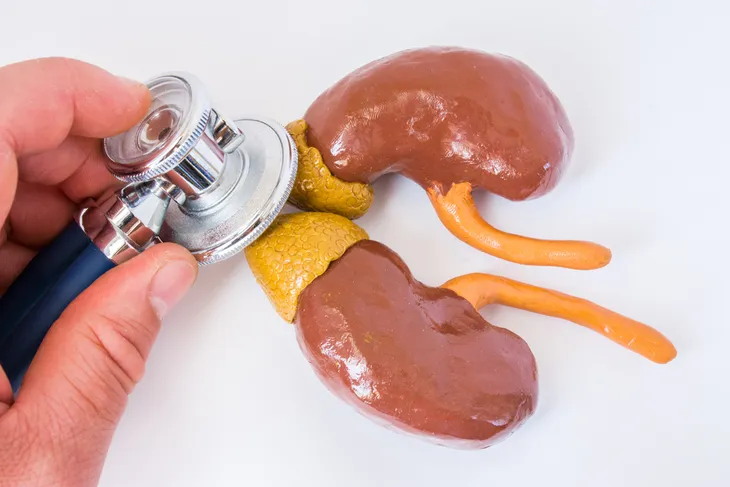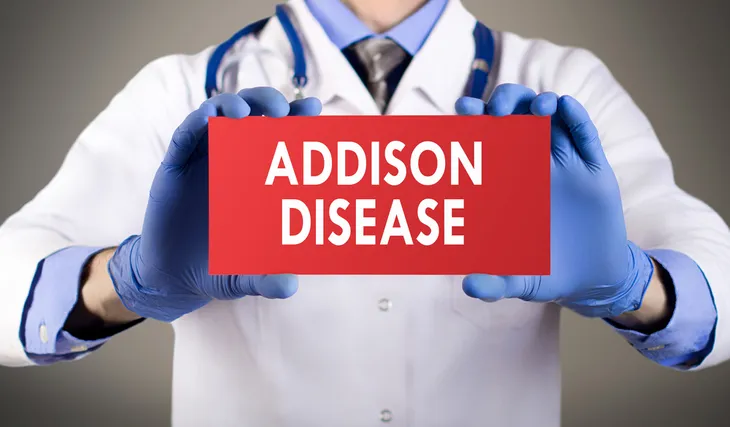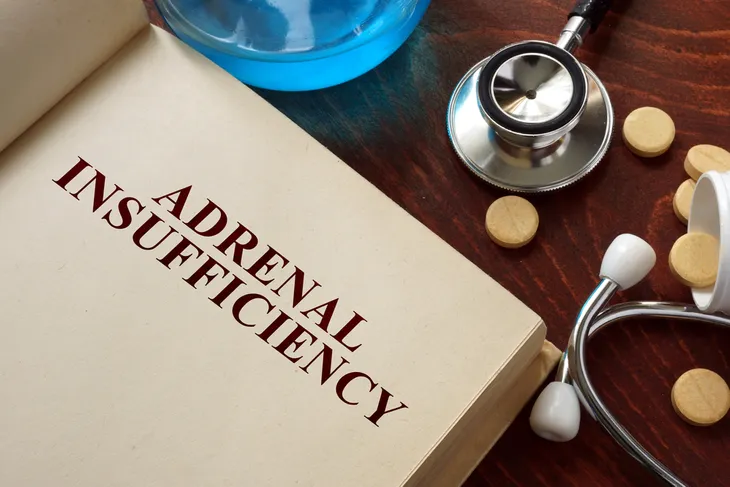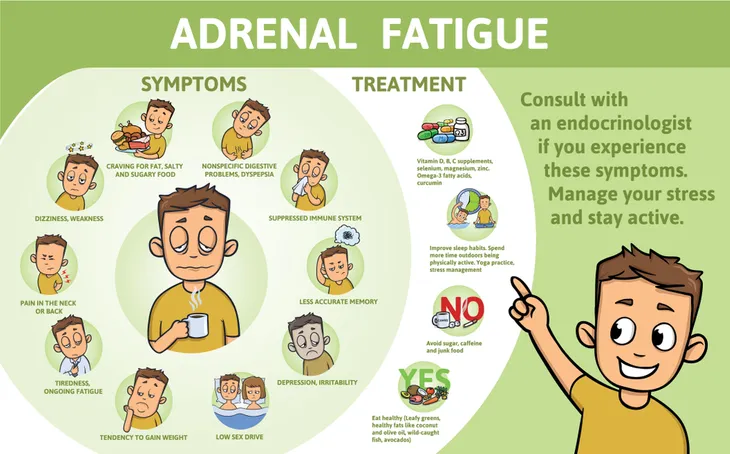Having trouble getting out of bed in the morning for no apparent reason? Are you dragging your feet all day long and having difficulty concentrating or completing tasks in a manner that’s unlike your normally energetic self?
While recent stress, poor sleep, depression, sleep apnea, or poor diet can all impact your energy levels, medical experts at the Endocrine Society claim that, in rare cases, your adrenal glands (hormone-producing glands) may be the culprits.
Here are the primary causes and signs of adrenal insufficiency…
1. Adrenal Fatigue vs. Adrenal Insufficiency
James Wilson, PhD, and the author of Adrenal Fatigue, writes that adrenal fatigue is a term often used to describe insufficiently working adrenal glands, which are two small glands located atop either kidney. However, according to the Endocrine Society, adrenal fatigue is not a proven medical diagnosis.
Adrenal glands produce and secrete hormones that power many essential bodily processes, including kidney function, sex hormones, and stress-responding hormones (i.e., cortisol). Medical experts theorize that, when the body undergoes high levels of stress for long periods, the adrenal glands can become insufficient and dysfunctional. According to the Endocrine Society, adrenal fatigue is not a proven medical condition while adrenal insufficiency is backed by medical evidence and can be diagnosed via testing.
2. Other Conditions that Affect Hormone Production
Many health conditions can impact your body’s hormone production. For instance, diabetes, thyroid issues, anemia, arthritis, and heart failure can all cause energy levels and hormone levels to lag—minus the connection to the adrenal glands.
Janet McGill, MD, a hormone specialist from Washington University in St. Louis, points to the above conditions, which are far more commonly the cause of hormone-related fatigue. This is why your doctor will often perform tests and explore the possibility of one of these common illnesses before assuming adrenal issues in patients suffering from unexplained fatigue.
3. Adrenal Dysfunction Due to Addison’s Disease
Addison’s disease, or primary adrenal insufficiency, impacts the adrenal ability to make hormones. Addison’s disease is a rare condition that’s most often the result of damaged adrenal glands due to an immune-related issue (i.e., in patients suffering from lymphoma, AIDS, or tuberculosis).
Doctors can determine the presence of Addison’s disease via simple tests as well as through several common symptoms, including absence of menstrual periods, chronic weakness and fatigue, dizziness, and darkening of the skin on the knees, elbows, palms, and knuckles of the fingers.
4. Medically Diagnosing Adrenal Issues
Unlike Addison’s disease, there is no easy way to determine adrenal insufficiency. However, once your doctor excludes the presence of immune-related illnesses that cause adrenal damage (i.e., lymphoma, AIDS, or tuberculosis), you may be referred to an endocrinologist.
Endocrinologists specialize in hormone-related issues and can perform a series of blood tests to establish hormone levels and adrenal insufficiency, as well as to recommend a healthy lifestyle regimen (of low stress, adequate sleep, regular exercise, and a healthy diet) to promote adrenal health and energy.
5. The Causes of Adrenal Insufficiency
According to The Hormone Health Network (a patient-awareness network supported by the Endocrine Society), while adrenal fatigue is not an accepted diagnosis among most medical practitioners, adrenal insufficiency is a real medical condition that results when our adrenal glands are unable to produce adequate amounts of hormones.
Adrenal insufficiency is most typically caused in one of two ways: 1. Damage to the adrenal glands, usually caused by the immune system. 2. Pituitary gland issues, this pea-sized gland (located in the brain) commands the production of cortisol by the adrenal glands.
6. Symptoms of Adrenal Insufficiency
A person with adrenal insufficiency can suffer an array of energy zapping symptoms, including sudden weight loss, unquenchable thirst and dehydration, confusion, unexplained dizziness or low blood pressure, fainting, stomach pain, nausea, chronic weakness, diarrhea, and chronic fatigue.
An endocrinologist, a doctor that specializes in hormones, typically diagnoses adrenal insufficiency via a series of blood tests and may prescribe hormone replacement to regulate the decreased hormone production by the adrenal glands.
7. The Danger of an Adrenal Fatigue “Diagnosis”
Doctors from the National Institutes of Health (NIH) claim that adrenal fatigue is an unproven diagnosis, one that’s almost always based on very broad, non-specific symptoms alone (i.e., fatigue, depression, trouble sleeping, and weakness) and not via medical tests.
Oftentimes, the symptoms of so-called “adrenal fatigue” are the result of poor diet, obstructive sleep apnea, or another health condition. While quitting smoking, cutting down alcohol intake, avoiding recreational drugs, exercising regularly, establishing healthy sleeping and eating plans will, no doubt, make you feel more energized, seeking a proper, medical-based diagnosis will be vital to treating you safely and correctly for the right condition. The NIH warns that supplements marketed for “adrenal fatigue” can be harmful to your health.










